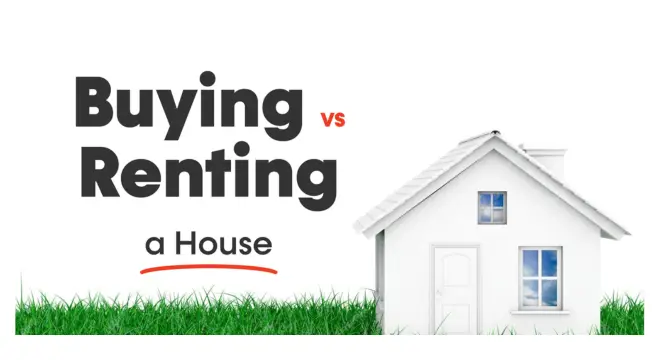North Carolina Homebuyers Beware: Hidden HOA Fees Could Cost You Thousands
When you’re buying a home, there’s a lot to consider. You’re excited about the house itself, the neighborhood, and the lifestyle you’re about to begin. But one thing that can easily slip through the cracks is understanding the HOA rules.
If your new home is part of a community governed by a Homeowners Association (HOA), these rules will directly impact your daily life. From restrictions on what you can do with your property to fees you’ll need to pay, it’s important to know what you’re signing up for.
Many homebuyers don’t realize how much control an HOA can have. It’s not just about how your community looks—it’s about what you’re allowed to do with your own property. Imagine moving in and realizing that you can’t even park your RV in the driveway, or that the HOA enforces rules on something as simple as the type of fence you can have.
According to an investigative report by CBS 17, homeowners in North Carolina have faced unexpected fines and restrictions due to unclear or strict HOA rules, causing significant stress and financial burden. Those are exactly the kinds of situations you want to avoid, and the best way to do that is by understanding the HOA rules before you buy.
Knowing what to expect helps you make an informed decision. You’ll avoid unpleasant surprises down the line and ensure that your new home matches your lifestyle and goals.
Common Misconceptions About HOAs That North Carolina Homebuyers Should Know
When you’re looking at homes in HOA communities, it’s easy to make assumptions about what the rules are and how they’ll affect you. I’ve seen a lot of buyers fall for common misconceptions that can end up being costly or frustrating once they’ve already moved in. Let’s break these down so you don’t run into the same problems.
First off, many people think HOA fees are optional. You might think, “If I don’t agree with something the HOA is doing, I can just stop paying the fees, right?” Unfortunately, that’s not how it works. HOA fees are usually mandatory, and not paying them could lead to fines or even a lien on your property. It’s important to recognize that these fees are part of the agreement when you buy into an HOA-governed community.
Another common misunderstanding is that HOA rules can’t change once you’ve signed on the dotted line. But HOAs can—and often do—update their rules over time. What you agree to when you move in might not be the same set of rules a few years down the road. This could affect anything from pet policies to community guidelines, so it’s worth understanding that the rules can evolve.
Finally, many buyers underestimate the level of control an HOA has over the appearance and maintenance of your property. While you might think HOA rules are just about keeping things neat and tidy, they can cover a lot more than that. Things like what color you can paint your front door, how high your fence can be, or even what kind of plants you can put in your garden—HOA rules can cover all of these, and more.
Understanding these misconceptions helps you avoid unpleasant surprises after you’ve already bought your home. By being aware of what the HOA can and can’t do, you can make a more informed decision about whether a particular community is the right fit for you. It’s all about knowing what you’re getting into before it’s too late.
What do you think is the biggest misconception about HOA fees? Share your thoughts or experiences in the comments below!
The Financial Impact of HOA Fees and Assessments in North Carolina

Buying a home is exciting, and it’s easy to get caught up in thinking about the house, the neighborhood, and your future plans. But sometimes, the ongoing costs that come with the property don’t get the attention they deserve. If you’re looking at homes in an HOA community, those HOA fees can make a bigger impact on your budget than you might expect.
Let’s talk about those HOA fees for a moment. These fees usually cover things like upkeep of common areas, landscaping, and sometimes amenities like pools or fitness centers. You might pay $50 a month in one neighborhood, while in another, you could be looking at $500 or more. It all depends on what the HOA covers and the area you’re buying into.
Now, here’s something you really need to watch out for—special assessments. You might think you’re done once you’ve locked in the monthly fee, but HOAs can sometimes hit you with unexpected one-time fees for large projects, like fixing roads, replacing roofs, or upgrading community amenities. I’ve seen assessments range from a couple hundred bucks to several thousand. If you’re not prepared for these costs, they can seriously throw off your budget.
It’s also important to check the financial health of the HOA before you buy. Well-managed HOAs tend to have adequate reserves and plan ahead for big repairs, while others may be prone to passing on high special assessments to homeowners when funds run low. This is something real estate experts at Kuester highlight as a key factor for buyers to consider, so you don’t end up facing surprise charges after moving in.
For those interested in staying updated on local property news and practical homeowner tips, there are WhatsApp groups and channels that regularly share useful insights—great for keeping an eye on changes that could affect you.”
Personally, I follow a few WhatsApp channels like BuildLikeNew’s WhatsApp channel for local property updates and practical homeowner tips. It’s been a handy way to stay informed about anything that might impact my property or community
Also, if you’re concerned about how upcoming tax law changes could affect your property taxes, check out my detailed article: How Proposed SALT Deduction Changes Could Impact Your Property Taxes in 2025.”
Key Things to Look for in HOA Rules Before Buying a Home in North Carolina
Before committing to a home in an HOA community, there are a few crucial things you need to check to ensure you’re not stepping into a situation that’s more restrictive than you’re comfortable with. Understanding these rules upfront could save you from a lot of unnecessary stress later.
First, always ask to see the HOA’s governing documents, especially the CC&Rs (Covenants, Conditions & Restrictions). These will give you the full picture of what’s expected from homeowners. Trust me, some of these rules can be pretty specific. For instance, you might be excited about personalizing your yard with a new garden, but what if the HOA has restrictions on certain plants or landscaping styles? It’s better to know about these limits before you’ve already moved in.
Also, take a good look at the HOA’s meeting minutes and budget. This will tell you whether the HOA is financially stable and running smoothly, or if they’re constantly dealing with issues that could affect you. Are they raising fees every year? Are there ongoing disputes or problems with maintenance? Knowing this can give you a better idea of whether the HOA will be a smooth operator or something you’ll be constantly battling.
Don’t forget to ask about pet policies as well. While this may seem minor, pet restrictions can significantly impact your lifestyle. You might assume your dog will be welcome, but the HOA might have rules on the size, number, or type of pets allowed. Being aware of these rules will help you decide if the community fits your needs.
Lastly, find out how the HOA handles disputes and complaints. What happens if you disagree with a decision or feel a rule is unfair? If there’s no clear process for resolving issues, you might be setting yourself up for frustration down the line.
By taking the time to review these key documents and understand the HOA’s rules, you’re protecting yourself from any unpleasant surprises once you’ve moved in. It’s all about making sure the community you’re considering will align with your lifestyle and values. This extra step will make all the difference in your home buying experience.
How to Get Involved and Ensure Fair Representation in Your HOA
Look, after buying your home, it might feel like HOA decisions happen without you having much say. But honestly, that’s not true. When you actively show up to HOA meetings and make your voice heard, you take back control. From what I’ve seen, homeowners who get involved have a much easier time because they help shape how their community is run.
HOA meetings aren’t just formalities—they’re your chance to speak up, raise concerns, and vote on important issues. If you skip out on these, decisions get made by others who might not have your best interests in mind.
Keeping an eye on what the board is doing is also smart. You want to make sure they’re managing the community fairly and responsibly. And if you want, you can even run for a board position yourself to make sure things go the way you think they should. The HOA works for you, but only if you get involved.
Do you attend your HOA meetings regularly? How has your experience been? Let us know in the comments!
Legal Protections for Homebuyers in North Carolina Regarding HOAs

Buying a home in an HOA community doesn’t mean you’re powerless. You have rights, and it’s important to know what legal protections are in place to back you up if things go wrong. I’ve seen people get stuck in frustrating HOA disputes simply because they didn’t know their options.
In North Carolina, there are laws that regulate how HOAs operate and protect homeowners from unfair practices. For example, if you believe your HOA is enforcing rules inconsistently or issuing fines unfairly, you have the right to challenge those decisions. The law also requires HOAs to provide certain documents and keep their operations transparent.
Knowing these protections isn’t just about avoiding problems—it’s about feeling confident that you have options if issues arise. You can request meetings, review HOA records, or even take legal action if necessary. It’s good to understand what steps you can take before problems happen, so you’re not left scrambling later.
How to Spot Potential Issues with an HOA Before You Buy
Not all HOAs are created equal. Some run smoothly, while others can be a headache waiting to happen. Before you commit to a home, it’s smart to look for warning signs that the HOA might cause problems down the road. I’ve heard from too many buyers who didn’t do this homework and ended up regretting it.
Look for signs of poor management. Are the common areas well-maintained, or do they look neglected? If the HOA can’t keep up with basic upkeep, it’s a red flag. Also, check if the HOA has a history of frequent fee increases or surprise special assessments—that usually points to financial troubles.
Another warning sign is high turnover in the HOA board or lots of unresolved complaints. That often means internal conflicts or a lack of clear leadership. Also, if the rules seem overly strict or outdated, ask yourself if you’ll be comfortable living there.
Spotting these red flags early helps you avoid communities that could cause stress and unexpected expenses. Doing your homework on the HOA’s track record protects your investment and peace of mind.
Conclusion
At the end of the day, knowing the HOA rules before you buy isn’t just about avoiding fines or restrictions—it’s about protecting your home, your lifestyle, and your peace of mind. I always tell buyers that a little upfront effort can save a lot of headaches later.
Understanding what you’re signing up for means fewer surprises and more control over your living environment. It lets you make decisions that match your needs, so you can truly enjoy your new home.
If you’ve made it this far, you’re already ahead of many buyers who skip this step. My advice? Don’t just take this lightly. Dig into those HOA documents, ask questions, and make sure you’re comfortable with the rules before you commit.
Disclaimer: This article is for informational purposes only and does not constitute legal or financial advice. Always consult with a qualified professional before making decisions related to HOA rules or home purchases. The author is not responsible for any actions taken based on this content.



I was one of the only homeowners that advised amending the Restriction Agreement and uncovering illicit activity over many years in our Crabtree HOA community.
Unless you have experience with HOAs and Board activity ASK many questions.
Thank you, M Sim, for sharing your experience. Stories like yours are exactly why buyers need to ask tough questions before signing on the dotted line. Your insight will help others stay alert!